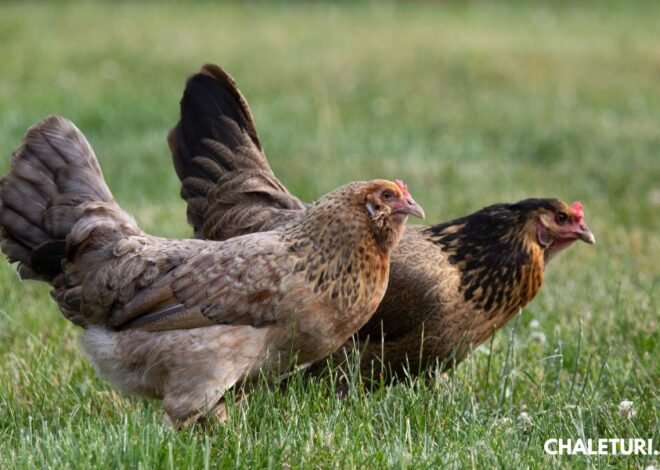Johnson and Wales University College of Dairy does not allow students to take any further advancement in their academic courses until they have completed the basic Dairy Program. College life starts with clubs raw, and one of the most rewarding parts of this journey begins with involvement in various clubs and organizations on campus.
You are likely to find out that these vibrant societies are the essence of student experience since they offer much more than a distraction from lectures and readings. They turn into a pathway for social, educational and career development. And in this post, we will cover how everything starts from clubs in college life and the remedy it offers goes beyond the walls of the classroom.
Why Clubs Are the Cornerstone of College Life
Getting involved in college level clubs is not just a passion for you, it is something that augments your entire college life. Clubs help you meet people, develop interests and abilities that are important for personal and career formation. Such memories and friendships can be created while stoned in the limelight of club activities and will endure even after the degree is obtained.
Partial participation with the above clarity should be compulsory in several students’ attitudes when it comes to joining cultures in the college. College life starts with clubs raw, and it’s very important for one to join them. If one is interested in a career area, certain leisure activity, or specific issues of dedicating one’s time, there’s probably a club for that as well. All students can then draw a fully formed student who can address issues from many points and even, more, experience different cultures.
Benefits of Joining Clubs
Enhancing Social Connections and Building Friendships
The chances of making new friends in a club are one of the first perks. College life starts with clubs raw, and clubs often gather people with the same interests and passions which makes it easier to relate to them and bond based on these experiences. These friendships usually go beyond just meeting in the club, offering a great source of assistance during college life.
Joining clubs also assists in easing the anxiety of being a freshman. The adjustment of living in college isn’t easy for everyone but being part of a community eases this. There are events, socials and other activities done by the clubs to promote interaction of the members so as to make them feel more comfortable in school.
Gaining Leadership Skills and Practical Experience
Leadership skills development is effectively done in the backbone of clubs since they possess their own structures. Most of the clubs have such positions as president, treasurer, or event organiser, which give students a scope of work and acquire some management and organising skills. These duties can greatly improve your curriculum vitae and equip you for prospective challenges in the career field.
Besides leadership, involvement in clubs is a way of practical learning outside a formal classroom setting. College life starts with clubs raw, and they include participating in a planning committee or being in charge of finances during events. All these practical experiences are extremely useful, including troubleshooting abilities, sportsmanship, ways of working with people, and many other soft skills that employers seek.
Improving Academic Performance Through Hands-On Learning
Instead of the common notion that clubs may be detrimental to studies, they in fact improve academic performance. Most clubs are of a more academic nature, and hence offer assistance and mentorship that relate to school work. For example, a science club can arrange for study groups or bring in guest speakers to help you better comprehend the subject.
Clubs also cultivate a mindset of knowledge that goes beyond the four walls of the classroom. They foster a sense of inquisitiveness and hence develop our capacity for analysis which is useful in all areas of study. With engagement in club activities, you will most probably change your understanding of the academic work and thus make it more fun and interesting.
Opening Up Career Opportunities and Building a Professional Network
Joining clubs while still in college is useful as this provides a platform to network for future prospects. These partnerships create opportunities for students to intern, get jobs, and seek mentorship from those resources. From such relationships, one is likely to secure employment once out of school.
Participation in clubs is a sign of self drive and pledge, characteristics which potential employers will find appealing. Participation in clubs also exposes an individual to extensive experiences and skills which boost one’s competitive advantage in the job market relative to others.
Types of Campus Clubs
Academic Clubs Related to Fields of Study
These organisations tend to the specific discipline and work with academic departments to extend the education. If you are pursuing a degree in engineering, literature, or environmental science there will most probably be a club related to your field of study.
There are also study groups, workshops and guest lectures organised by academic clubs to help students advance their studies in a conducive environment. Also, there is scope of discussing current trends and advances within the field to keep the members updated.
Cultural and Diversity Clubs
Cultural clubs highlight and encourage pride in the unique cultures present in college campuses. Hence, these clubs host cultural activities, festivals and talks where members can represent their culture and learn about other cultures.
Participating in a cultural club can expand your horizons as well as enhance your cultural competence, a very vital asset in our ever globalising world. It also helps in giving a sense of community to students of various ethnicities promoting an inclusive atmosphere on campus.
Professional and Career-Oriented Clubs
Professional clubs are established in relation to different fields in order to assimilate students into their professions. Most often, these organisations provide opportunities for events as networking, career fairs, and panels inclusive of insights into industries they intend to be a part of. They provide guidance on resume crafting, conduct mock interviews, and many more to ensure that the students get the jobs that they aspire to.
As a motive for participating in the professional clubs, you expose yourself to useful materials and networks that are likely to influence the direction of your career. These clubs are a very effective way of knowing the developments which are taking place in the course of the area so as to be a good employee.
Special Interest and Hobby Clubs
There are clubs for almost any activity and interest, from photography and scenery to gaming and food makers. Such provisions allow for easy interaction with other individuals that have common interests and pursue interests in a more fun way.
For students actively pursuing their studies, what course is there if not joining hobby clubs keenly to blow off steam and stress? They stimulate imagination and individuality, providing an opportunity to acquire fresh and even surprising skills in a safe environment.
How to Choose the Right Club
Self-Assessment of Interests and Goals
Reflect on your interests and purpose before joining a club. What would you like to do? What new skills would you like to master? Knowing your overall purpose will assist in making a choice over clubs of such an orientation which you believe can deliver the most value.
Make a list of both short term goals and long term goals as they relate to club selection. Some of the clubs will serve existing demand and bring some immediate advantages while some will serve career or academic aspirations thus having an influence on development.
Researching Available Clubs on Campus
Since there are quite a number of colleges which provide a lot of clubs, be sure to investigate your optlist through and through. Look up your college’s student organisation webpage or a club handbook in order to find out the amount of clubs. Look up their goals and activities, their events to understand what is the purpose of each club.
If it is allowed, try talking to the members of the club or attend orientation lectures in order to know more about the content and the activities of each of the clubs. All this can help you make an intelligent choice and find a few clubs which you truly care about.
Attending Club Fairs and Events to Learn More
Club fairs and events are good places to come to know about the campus’ various clubs and get in touch with their present members. These events also provide counters and you come and make inquiries, get some information as well as enrol for the clubs then.
Thus, do not hesitate to approach what seems scary at the very beginning and engage in those clubs that perhaps you would never even think of joining. Taking such steps will help you get new ideas and new people whom you didn’t expect, which will improve your life at the college.
Overcoming Common Hurdles
Balancing Club Participation with Academic Workload
Club activities do not leave much time for students to study, which is one of the greatest problems. Therefore, when faced with such situations, you should combine these methods: set your priorities straight and plan how much time you have for studies and other activities.
Time management is of utmost importance, especially in such situations. Use planners or mobile apps to keep track of your work and have certain time slots for meetings and other events. Note, however, that there should not be an overemphasis in either academic work or club activities.
Navigating Social Anxiety and Finding the Right Club Fit
I easily understand that what tends to be easiest in thinking is the hardest in action, like joining a club, especially a sports one if one has social anxiety. Still, let me remind you that the primary purpose of a club is to promote inclusivity and open-mindedness. You may begin with just visiting meetings as an observer so that you may get used to the environment and the participants.
If you feel stuck, reach out to club leaders or members. They will help you and it is absolutely normal to look for such help when starting to socialise. Do not be afraid as I myself was scared but then started making friends in a foreign club.
Managing Time Effectively to Juggle Club Activities and Personal Life
Being part of many clubs may be appealing but it could also be tiring. In order not to get exhausted, manage your time wisely and have reasonable expectations of yourself. Think about the number of clubs you want to belong to with respect to your interests and responsibility.
Realistically evaluate what other commitments you have, and when the situation arises, don’t hesitate to decline if it’s not something you’re interested in partaking in. This is especially so because there are a number of academic, social, and personal responsibilities that everyone is expected to be able to manage and work upon without the need for added pressure from club obligations and time consumption.
Success Stories
It can be quite motivating to hear from active or former students about the benefits they received from being involved in the club. For instance, take the example of Alex, who became a member of the debate club and grew very interested in public speaking; Hence, she eventually ventured into doing law. Then, there is Rachel who, being part of the sustainability club, learnt about environmental advocacy and today, leads successful conservation initiatives.
These stories reflect the possibilities that exist for the growth and development of an individual within clubs or through the involvement of clubs. These and other similar stories advocate that clubs offer avenues for locating interests, acquiring competencies and pursuing ambitions in regard to careers and the like.
Conclusion
Restating the importance of clubs in university, it has become evident why the author believes that such organisations are essential in any college. They provide various advantages, such as increasing social interactions and gaining management abilities to the enhancement of studies and career opportunities. It is precisely at the clubs that a student life begins and, having joined them, you will be able to make your life in college to the fullest.
Well whether you are a fresh blood who is specifically waiting for the time to try something new or just another normal old student tired of the same things over and over again you can finally breathe because there is a club for you. Club activities are those that should never be underestimated; join in, make friends and move beyond your limits.
We also want to hear from you about the clubs. Sharing your perspectives helps other club uglers to understand their ideas and be able to connect.
Additional Tips and Resources
For those wishing to dig deeper into a particular topic or find other clubs on campus:
- Campus Labs: A platform for finding clubs and organisations at colleges nationwide.
- Hercampus: An online community for college women, offering advice on campus life and clubs.
- Meetup: A website that connects people with shared interests and facilitates club events.
If you are interested in a club and can’t find one that suits your needs then why don’t you establish your own one? Speak to people at your college’s student affairs office on how to create and develop a new club.




